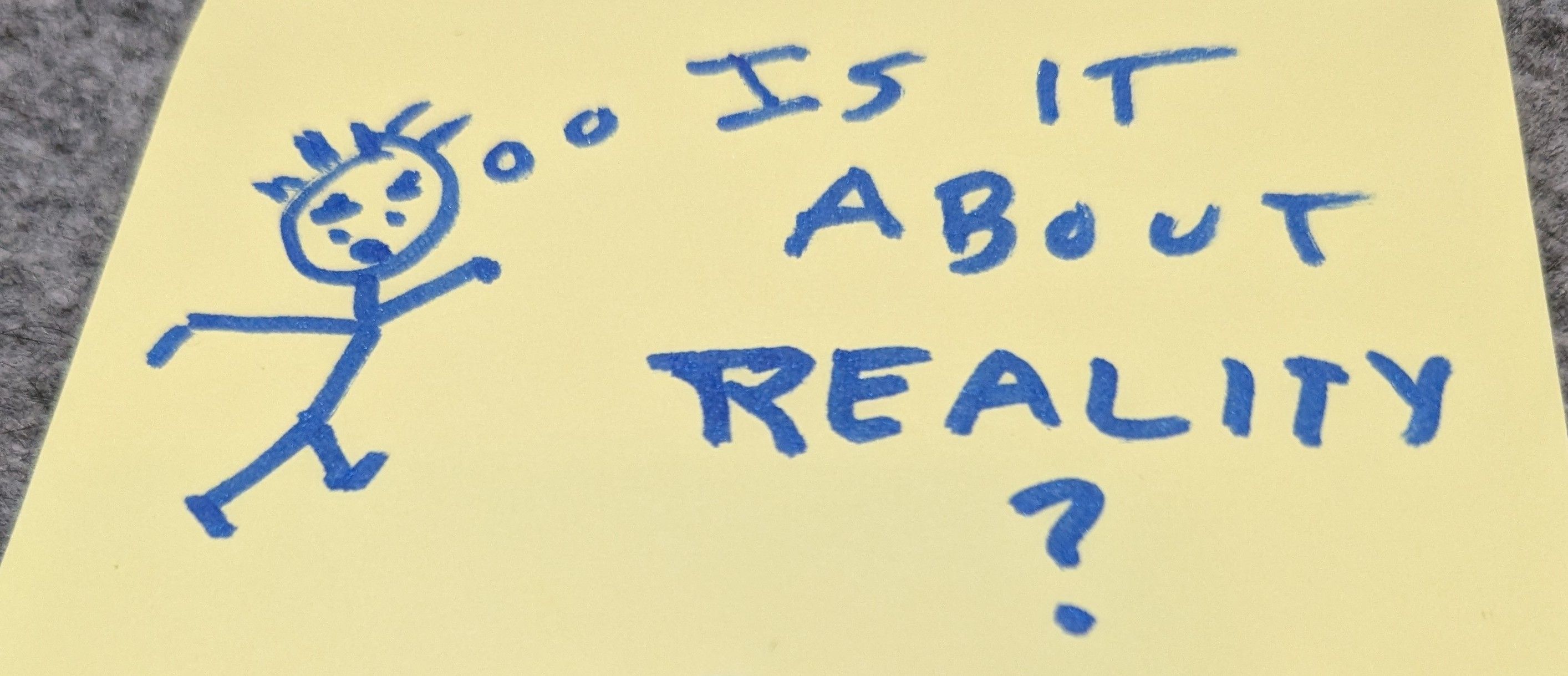Is atheism about reality?
Not unless it's wrong.
Jump to section titled: Not unless it's wrong.If atheism is true, it's not a belief about reality itself. Instead, it's a belief about human ideas: that certain human ideas about reality are false.
But if atheism is false, it is about reality after all.

The argument from freedom has the same property. It is a different sort of philosophy depending on whether or not it's correct.
If it's true, the argument is about human ideas and which ones are wrong. But just like atheism, if the argument from freedom is false, it's an incorrect argument about reality itself.
How so?
Jump to section titled: How so?The argument from freedom starts with an expansive form of atheism.
What, you might wonder, is an "expansive form of atheism"? Like your everyday atheist, I do not believe in an eternal Creator or in any other supernatural explanations for reality. But also (here comes the "expansive" part) -
- I do not believe in fundamental laws of physics or predetermined constants of nature.
- I do not believe anything can be "outside of" or "prior to" reality.
- I do not believe in brute facts (facts about reality that "just are" for no good reason).
All of these are constraints - they are ways that reality would be influenced as if from the outside. And when you are talking about all of reality, how would such constraints arise? What sets up the laws of physics; the geometry of spacetime; constants of nature? There is nothing outside of reality to set these parameters.
The universe is free
Jump to section titled: The universe is freeAnd so my argument begins with a belief that is, formally, negative in the same sense that atheism is negative. An atheist interprets the idea of a Creator as a human idea that does not apply to reality; so she talks about human ideas, and says something negative about them: they aren't right. I am doing the same sort of thing, but with all of the constraints that we might imagine reality to be subject to.
Although it's a negative argument, I like to put this more positively. Instead of saying, there are no constraints on reality; we can equivalently write, "the universe is free."
What will it get us?
Jump to section titled: What will it get us?Starting with a strictly negative belief about the world, I will end with strictly negative assertions about the world. I will never say what reality is; only what it is not. That may or may not sound promising to you.
I think it gets pretty interesting, because in ruling out what reality cannot be like, we find some unexpected properties. Most importantly, that reality cannot have any crisp, self-identical features. (That is where "ontic vagueness" comes in.) And that means reality is fundamentally amathematical - another negative assertion, but a surprising outcome nonetheless.
More about that later, or check out The Argument from Freedom here.
It's not about reality
Jump to section titled: It's not about realityWhere were we? ...wrapping up today's focus... If the argument from freedom is right, like atheism, it is not about reality at all. Instead, the argument is an exploration of what it means if a particular family of human ideas are inapplicable to reality. This family is that of constraints, and if you believe reality is free, a fundamental constraint on reality has the status of a God.
And if it's wrong? In that case, the argument from freedom is a false (and possibly heretical) argument about reality itself, and it would be wrong.
Let me know what you think, and do share with folks who might be interested. Please let them know if you can honestly say, "Well damn. This is interesting. It's actually worth a read."
Links
Jump to section titled: Links- Open access PDF Ontic Vagueness: The Argument from Freedom
- Kindle version Ontic Vagueness: The Argument from Freedom
License
Jump to section titled: LicenseCopyright © Adam Weisberg (2025) Creative Commons Attribution Non Commercial No Derivatives 4.0 International